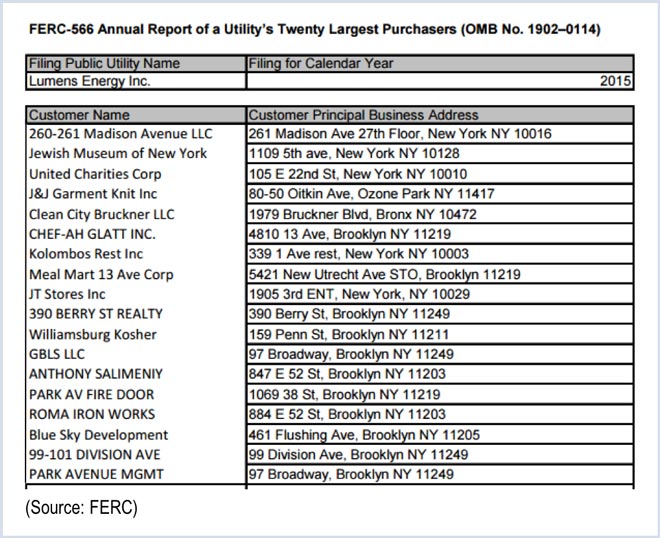By Rich Heidorn Jr.
RTOs, ISOs and exempt wholesale generators will no longer have to file Form 566 (Annual Report of a Utility’s 20 Largest Customers), a minor but annoying requirement.

The commission noted that the report is intended to capture sales to end-use customers as opposed to those purchasing for resale. As a result, RTOs and ISOs have had to report only that they had no applicable sales. The same goes for exempt wholesale generators, which by definition cannot make retail sales.
FERC’s order computes down to the dollar the impact of the changes. Eliminating the requirement to provide the name and address of any residential customers will save 29 utilities 15 minutes each a year. In total, the rule change will save $390,312, FERC estimates.
But why did this rule exist in the first place? And what purpose does it serve today? Those answers are nowhere to be found in the 25-page order, which notes only that the form is the result of Section 305(c) of the Federal Power Act, dating to 1935.
FERC’s Frequently Asked Questions provides limited guidance, saying that the commission uses the form along with Form 561 (Annual Report of Interlocking Positions) to “determine whether public or private interests will be adversely affected by the holding of officer or director positions of both a public utility and its customers.”
Have the two forms ever uncovered any problems or resulted in enforcement actions? A FERC spokeswoman couldn’t say Monday.
FERC’s action exempts all but 196 of current filers, who are expected to spend a total of 1,071 hours annually on the paperwork at a cost of $77,094 (assuming an hourly cost of $72/hour).
FERC rejected the Edison Electric Institute’s request to extend the exemption to qualifying facilities or utilities participating in RTO and ISO markets. The commission said utilities participating in organized markets “may well also make sales ‘for purposes other than for resale.’”
“Adopting EEI’s suggestion would virtually eliminate the filing requirement, contrary to the statute,” FERC said.
The commission also declined to exempt transmission-only companies, but it said they may escape filing requirements because the commission is eliminating the reporting obligation for public utilities that make no reportable sales for the preceding three years.
It did, however, adopt EEI’s suggestion that it eliminate the requirement that utilities notify the 20 largest purchasers that their names are being reported.



